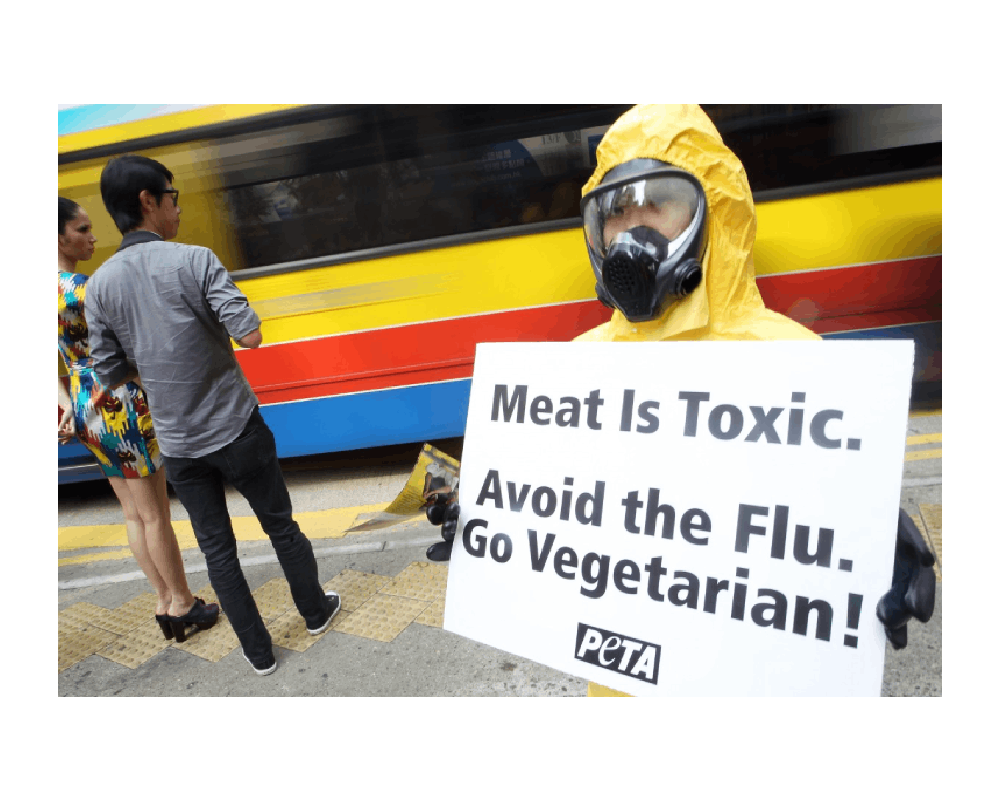Original Article: SCMP
The latest coronavirus outbreak is giving me a dreadful feeling of déjà vu. Seventeen years ago, when the severe acute respiratory syndrome first made headlines, I locked myself in a cage in Hong Kong to illustrate the way our taste for animal flesh contributed to animal-borne diseases.
That same year, I wore a hazmat suit to the
All in all, I’ve spent more than two decades warning people that it’s unhealthy – and downright dangerous – to raise animals for food.
Seeing people get sick and die from the latest coronavirus has only strengthened my resolve to persuade everyone to stop eating animals. We need to learn from past pandemics and go vegan, before wearing face masks
According to the United Nations, 70 per cent of new human diseases originate in animals and most of those are directly linked to animals used for food. Meat markets, factory farms, and slaughterhouses provide the perfect breeding ground for coronaviruses and other potentially devastating pathogens.
The high demand for animal-based foods means that animals must be mass-produced in crowded,
It’s not unusual for animal-borne pathogens to mutate and sicken humans. While precautions such as quarantining at-risk individuals and practising good hygiene may help stop the spread of Covid-19 and other deadly diseases, we need to take one more significant step to prevent future epidemics of animal-borne diseases in the first place: stop raising animals for food.
It’s bad enough that the consumption of meat and other animal-based foods contributes to heart disease and cancer and that harmful bacteria, including salmonella and E


